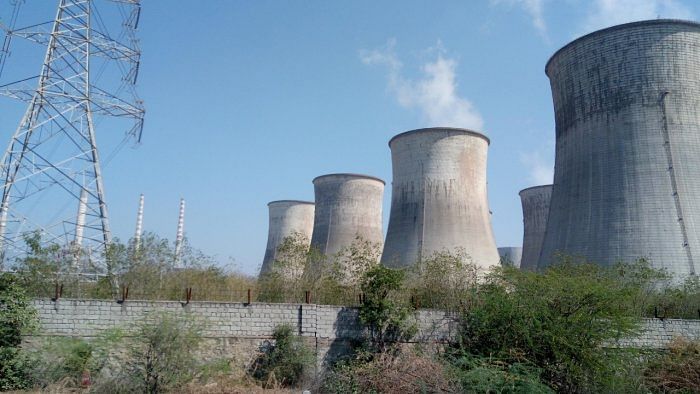
Environmentalists on Wednesday slammed the Union Environment Ministry for granting an extension of two years to thermal power plant units once again to comply with a critical air pollution norm.
The extension comes at a time when studies show little improvement in ambient air quality even in cities where the Centre runs a focussed pollution abatement scheme.
In a new notification issued on Sept 5, the ministry granted an additional two years of time to the power plants to reduce sulphur dioxide emissions while retaining the deadlines for nitrogen oxide and particulate matter.
“Our analysis shows that till date, only 4 per cent of India’s coal power capacity has installed equipment to control sulphur dioxide emissions and another 41 per cent has identified the vendors for supply of the equipment. The remaining 55 per cent has not taken any concrete steps to meet the norms even after seven years since the norms were first notified in December 2015,” said Nivit Yadav, programme director, industrial pollution at the Centre for Science and Environment.
As per the new amendment, power plants located within 10 km radius of Delhi—NCR or cities with a million plus cities get time up to December 31, 2024 from the existing deadline of December 31, 2022.
Similarly for units located within 10 km of critically polluted areas or non-attainment cities (a list of 120 plus cities that don’t meet the national ambient air quality standards), the deadline has been extended to December 2025. All other thermal power plants have time up to 2026.
The extension comes months before the deadline for half of the thermal power capacity in category-A (Delhi-NCR or a million plus population) expires.
If not for the new notification, all plants in category A would have been liable to pay a penalty ranging from Rs 0.10-0.20 per unit of electricity generated after the lapse of the 2022 deadline.
“These plants can now continue to flout SO2 norms for another two years without any repercussions,” said Yadav.
"Unfortunately, the environment ministry has become an advisory ministry rather than a regulatory ministry. Instead of taking punitive action against the violators, all that it is doing is succumbing to the dictates of other ministries. With this extension, a clear message has gone from the central government to all power companies that they should not take environmental norms seriously," environment lawyer Ritwik Dutta told PTI.
Another larger gain by the new extension is for the old units that are nearing retirement and are the most polluting owing to lower efficiency of plant operation. The notification allows for such units to keep running until their self-declared period of retirement.
The Central Electricity Authority (CEA) has identified 3,912 MW that is ‘to be decommissioned’, but has not revealed for how long these plants are going to operate without having to meet the norms.
In a May 2020 report, the CSE had shown 70 per cent of the thermal power plants were not complying with sulphur emission standards and had not even started the process for installation of control equipment back in 2020 when the study was conducted.
“Compliance with particulate matter and nitrogen oxides norms was never a challenge for this sector – sulphur dioxide emissions is what needed to be worked on,” said Yadav.
Owing to the unpreparedness of the majority of coal power plants to meet the norms, primarily sulphur dioxide standards, the ministry had disaggregated such plants into three categories in March 2021, with differentiated deadlines, on the basis of the plants’ location.
